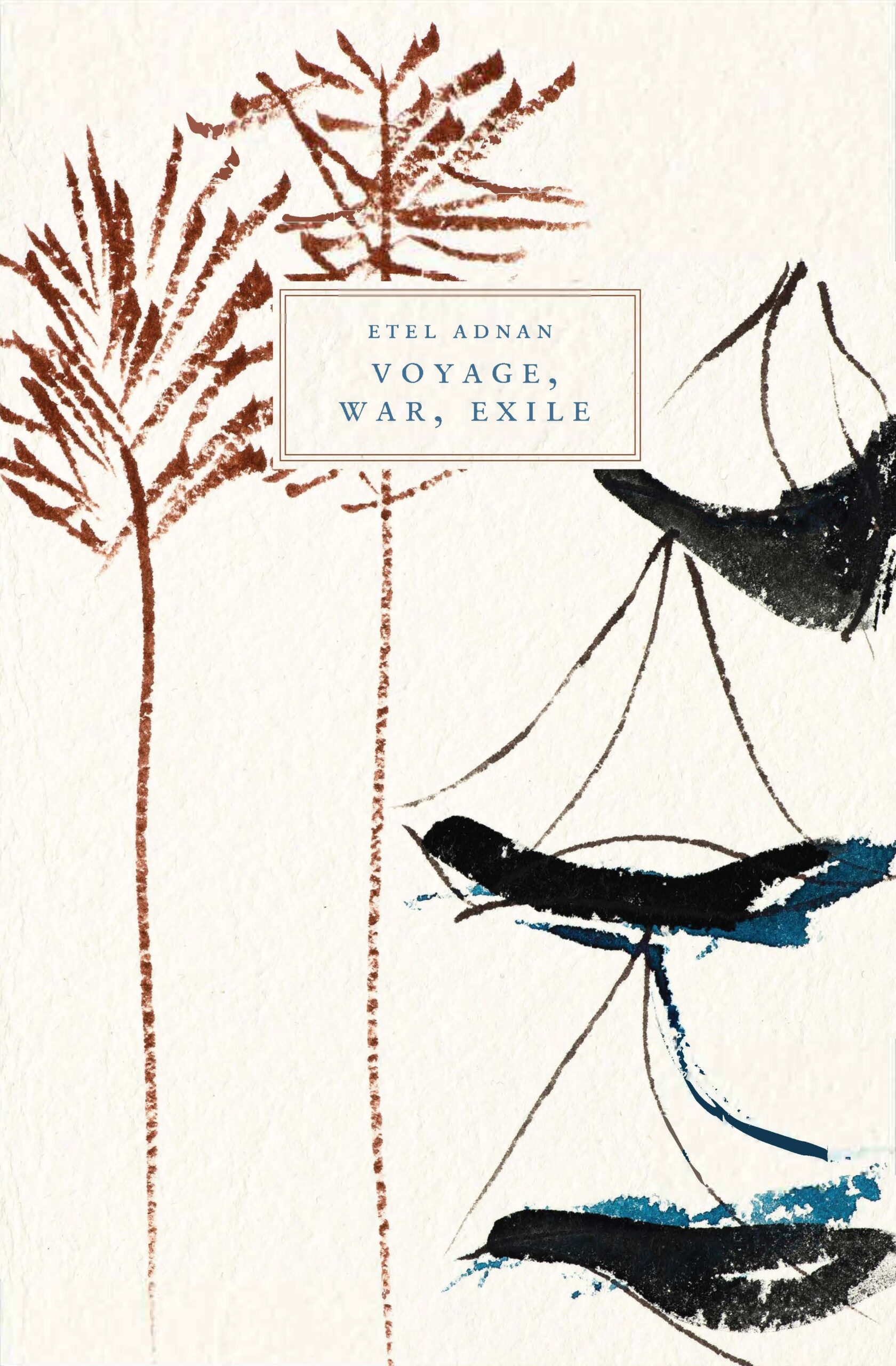Adnan’s Voyage, War, and Exile

This is the third post in a series of engagements by Litmus authors, translators, and editors reflecting on the connection of their work to the ongoing struggle and violence, current and historical, in Palestine. Rooted in our commitment to creating and maintaining space for international exchange and dialogue, Litmus Press has launched this series, War & Peace, in homage to the journal War & Peace, edited by Leslie Scalapino and Judith Goldman from 2004-2009 (preceded by enough, eds. Scalapino and Rick London, 2003, and O/Three: War, ed. Scalapino, 1993).
from “Voyage, War, Exile”
(1994)
I originated in a part of the world that war has made and unmade since the beginning of this century. My memory as well as my daily life are woven with war. I often wondered how as fragile a system as the human body could bear upheavals become chronic as the ones that the Arab East has known and is still experiencing.
I was the only child of a family which has known war and exile as a consequence of war. My father was a Syrian, a high ranking officer of the Ottoman Empire, and my mother was a Greek from Smyrna, her father being a wood-carver; they met and married during World War I. In 1922, Smyrna burned in a cataclysmic fire, the war was lost, the Empire dismembered, so they came to Lebanon and settled in Beirut, a garden city with a view from all over, on the sea they knew and the most beautiful harbor of the Mediterranean.
•••
But we know that the Earth contains under its crust formidable plates which move constantly and in contradictory directions, creating earthquakes, and like herself, I was creating, within my soul, opposite currents equally ominous: I was espousing the dreams of the Arabs, their dramatic dreams of freedom, dignity, and unity, all symbolized then by Gamal Abdel Nasser; at the same time, and in another direction, I was plunging wholeheartedly into America, its history, its literature (falling in lasting love with the American Indians and with jazz music), aware and practically hypnotized by its frightful possibilities of mass destruction and by its incredible conquests of the moon and of space. I was living in a new time and space scale, in the absolute sense of the present, merging my own mythical time with America’s own. Following the Apollo missions and its rockets, I was extra-territorial and tuned to the universe.
But the foreseeable earthquake did manifest itself; war broke out in 1967, involving Egypt, Syria, and Jordan, and America did decisively participate in the destruction of the Arabs, of their dreams and their lands, and I experienced terror, a terror that my surroundings were not sharing, and I started losing ground, getting not confused, but wounded, isolated, detached although still attached, a conflict which later made me ill for practically a whole year, from 1971 to 1972. I felt the urge to break away, go back to Beirut without looking behind me and not knowing what the future would be. I had come full circle. In the summer of ’72, I was returning to Beirut literally on a stretcher. I had left as a voyager and I was coming back in exile.
•••
I was discovering—living—exile’s profound meaning. What is exile if not the violent and involuntary loss of all the living symbols of one’s identity? At this point, instead of me leaving, it was Beirut which was leaving me, and, we know it now, forever. Here was an exile which was total, absolute: I was in Beirut and I was witnessing that she was never going to grow normally, to remain the core of what she was. I was seeing (without any exaggeration) the meaning of Paradise lost.
•••
I had seen, over and over again, with my own eyes and on television, these faces, Palestinian faces, people forced to abandon their country and who are parked into camps, or lived as foreigners on their own territory, denied the power to run their own affairs, which is to say exiled from their own selfhood. And this is true today of the Muslim Bosnians, as it is true of the Indians of the Americas, the United States included, where among other indignities, they are forbidden to study in their own schools their own languages and cultures, and practice their own religious rites. To be exiled on one’s own homeland and from one’s culture is maybe the most desperate of all forms of exile. It is living hell.
•••
War is a cataclysmic event which shakes the psyche and brings to the fore of consciousness ideas and emotions one thought resolved or forgotten. Memory gets heightened, overheated, so to say, thrown into a state of urgency. One’s life can be put into question, forcefully, new light shed on old beliefs.
•••
I came to think—which is no consolation—that our predicament is not only our own. Amidst ecological disaster, economic predatory tactics and political bankruptcy, a human being, wherever, appears to be a fallen angel, an angel exiled from the old Paradise as well as from the future. Exile is not the sad privilege of only a few individuals: it has become synonymous with the human condition, but with (slight) difference that some of us are eaten by this illness in ways evident and definitive while all the others are not yet conscious of what they already are suffering from. We are, as contemporaries of this day and age, all, very, very close to each other, but very few are those who share with us that knowledge.
— Etel Adnan
Voyage, War, Exile: Three Essays (forthcoming March 2025)
Cover artwork by Simone Fattal

